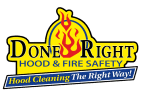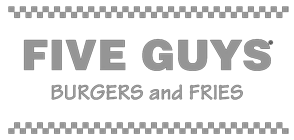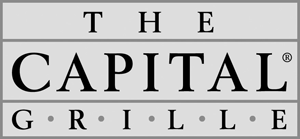Safeguarding Your Restaurant: A Comprehensive Guide to Fire Suppression Systems and Safety Compliance
It’s vital for you, as a restaurant owner, to understand the importance of restaurant fire suppression systems in safeguarding your establishment. These systems are designed to quickly extinguish fires, minimizing damage and protecting both your employees and customers. Knowing how these systems work and the best options available can streamline your fire safety process and enhance your business reputation. In this guide, you will learn everything you need to know to make informed decisions about implementing and maintaining fire suppression systems in your restaurant.
Understanding Restaurant Fire Suppression Systems
A restaurant fire suppression system is a key component of any restaurant, designed to mitigate the risks associated with cooking-related fires. These systems work automatically to detect and extinguish flames, providing peace of mind for restaurant owners. By understanding the different types and functionalities of these systems, you can better protect your establishment and its patrons.
Types of Restaurant Fire Suppression Systems
Types of fire suppression systems can be classified based on their methods of operation:
| Water-Based Systems | Utilize water to cool and douse flames. |
| Chemical-Based Systems | Deploy specialized agents to smother fires according to NFPA 17A guidelines |
| Dry Chemical Systems | Effective against various types of fires. |
| Foam Systems | Create a barrier to prevent oxygen from fueling a fire. |
| Inert Gas Systems | Displace oxygen to extinguish flames. |
After understanding these types, you can choose the appropriate system for your restaurant’s unique needs.
How Fire Suppression Systems Work
Along with simply being a necessity, fire suppression systems are designed to sense and combat fires rapidly. When a fire occurs, heat or smoke triggers the system, releasing a suppression agent that targets the flames.
Even the most advanced restaurant fire suppression systems are engineered to protect your business effectively. They utilize sensors responding to heat or smoke, which initiate a rapid release of suppression agents to control or extinguish the fire before it spreads. As a restaurant owner, understanding how these systems work can help you minimize risks, protecting both your employees and patrons. Quick response times can significantly reduce damage, ultimately securing your restaurant’s future. Investing in a reliable system ensures you’re prepared for emergencies, promoting a safe dining experience for everyone.
Importance of Restaurant Fire Suppression in Restaurants
The restaurant industry is particularly vulnerable to fire hazards due to cooking equipment, flammable materials, and high traffic areas. Implementing an effective fire suppression system not only protects your business but also ensures the safety of your staff and customers. Investing in this vital safety measure can save lives and significantly reduce property damage in the event of a fire.
Protecting Lives and Property
Between the heat of kitchen appliances and the risk of grease fires, the potential for disaster is ever-present in restaurants. A restaurant fire suppression system serves as your first line of defense, swiftly extinguishing flames and minimizing danger. By having a robust system in place, you not only protect lives but also safeguard your investment, ensuring your establishment can continue to thrive even in the face of unforeseen circumstances.
Compliance with Local Regulations
Protecting your property means adhering to local fire safety regulations which often mandate the installation of restaurant fire suppression systems in commercial kitchens. Compliance doesn’t just keep you on the right side of the law—it also reflects your commitment to safety. By understanding and meeting these regulations, you ensure your establishment is both safe for patrons and legally sound.
The regulations regarding fire suppression systems can vary by location, making it important for you to stay informed. The local fire jurisdictions, like FDNY, require that certain standards be met, including the type of system installed and regular maintenance checks.
Failing to comply with these regulations could lead to substantial fines and potential legal issues, impacting your business’s reputation and continuity. Prioritizing compliance not only protects you but also instills trust in your customers, as they see that you have taken the necessary steps for their safety. Understanding these requirements can fortify your establishment against risks and strengthen your business’s foundation.
Key Components of Restaurant Fire Suppression Systems
Now that you understand the importance of restaurant fire suppression systems in your restaurant, it’s imperative to know their key components. Fire suppression systems typically consist of detection systems, extinguishing agents, and control panels that work together to protect your establishment.
Detection Systems
Along with extinguishing agents, detection systems are critical. They utilize heat, smoke, and flame sensors to identify a fire’s presence quickly, allowing for prompt action to mitigate damage. Efficient detection ensures that you can respond rapidly and effectively to protect your staff and patrons.
Extinguishing Agents
Restaurant Fire Suppression Systems that use extinguishing agents are designed for specific fire types, primarily Class K fires related to cooking oils and fats. They may utilize wet chemicals or foam, targeting the heat and fumes while minimizing damage to your property. Understanding your options when it comes to extinguishing agents is imperative. Wet chemical agents are particularly effective on kitchen fires, as their unique properties cool and suffocate flames, significantly reducing fire spread. By selecting the right agent for your establishment, you enhance safety and fire response efforts.
Installation and Maintenance
Not only is installing a restaurant fire suppression system a necessary safety measure, but proper maintenance is also vital to ensure that your system performs effectively in the event of a fire. Regular checks and servicing by qualified professionals help identify any potential issues before they become threats, ensuring your safety and compliance with local regulations.
Choosing the Right System for Your Restaurant
About selecting a restaurant fire suppression system, you’ll need to consider the specific needs of your restaurant, including kitchen size, layout, and type of cooking equipment. Different systems are designed to tackle different fire classes, so it’s important to choose one that aligns with your operational needs, providing the best protection possible.
Educate yourself further by checking out our Guide to Choosing the Right Fire Suppression System, which covers these elements in greater detail.
Regular Maintenance and Inspections
Choosing routine maintenance and inspection for your fire suppression system is important. This includes cleaning, testing, and ensuring all components are functioning correctly. It not only boosts reliability but also helps you stay compliant with safety regulations.
Due to the highly flammable nature of cooking environments, regular maintenance and inspections of your fire suppression system is a fundamental aspect of your restaurant’s safety strategy. Schedule detailed inspections at least twice a year, ensuring that all nozzles, pipes, and tanks are clean and operational. Consistent checks can help identify leaks or malfunctions early on, which can prevent potential disasters and save lives. Your diligence enhances the effectiveness of the system, ultimately protecting your staff, customers, and property.
Training Staff on Fire Safety
Once again, effective fire safety training is vital for your restaurant’s operational success. Ensuring that your staff understands fire hazards, proper use of fire suppression systems, and emergency protocols instills confidence and preparedness. Regular training sessions help create a culture of safety, empowering employees to act quickly and effectively in case of an emergency.
Importance of Staff Training
Training your staff on fire safety significantly reduces the risk of incidents in your restaurant environment. It equips them with the knowledge to identify potential threats and the procedures to follow, ultimately protecting not just your establishment, but also your employees and customers from harm.
Emergency Procedures
With proper fire safety training, your staff will know exactly what to do in case of a fire. This knowledge includes how to operate fire suppression systems, where to muster in an emergency, and how to assist customers safely evacuate.
Due to the potential chaos of a fire situation, having effective emergency procedures in place is crucial. Your staff should be familiar with evacuation routes, the location of exits, and how to communicate effectively during an emergency. Conducting regular drills ensures that everyone knows their roles, which can significantly minimize confusion and panic. Additionally, having a designated team to assist with the fire suppression systems can further reduce damage and ensure that evacuation is conducted smoothly. Staying organized and informed during these critical moments can have a major impact on the overall safety of everyone in your restaurant.
Successful Implementation Examples
Studies show that restaurants implementing robust fire safety measures significantly reduce the risk of fire incidents. One case involved a family-owned diner that upgraded their fire suppression system, leading to zero incidents over five years. Another example is a fast-food chain that standardized fire safety training, resulting in a 70% reduction in fire-related complaints. These instances illustrate the benefits of proactive fire safety measures.
Lessons Learned from Failures
Between incidents, several lessons emerged regarding the failure to implement adequate fire suppression systems. Many restaurant owners overlooked routine maintenance, which can lead systems to malfunction when needed most.
Implementation of appropriate fire suppression systems is not solely about installation; it requires ongoing diligence. Many failures stem from a lack of regular inspections and maintenance, leaving systems compromised when a fire occurs. Fires often escalate quickly in kitchens, making it imperative that you have a reliable system in place, regularly checked, and updated to align with your operational needs. Investing in fire suppression education, training, and adherence to safety standards can mitigate risks and protect your investment. By acknowledging past errors, you can fortify your establishment against potential disasters.
Wrapping Up
Understanding restaurant fire suppression systems is vital for the safety and longevity of your establishment. You need to be well-informed about the various types of systems available, their maintenance requirements, and the legal regulations that apply to your business. By investing in a reliable suppression system and ensuring it is regularly serviced, you can protect your staff, customers, and assets while maintaining peace of mind. Stay proactive in your fire safety strategies to safeguard your restaurant’s success.
FAQ’s
Q: What is a restaurant fire suppression system and how does it work?
A: A restaurant fire suppression system is a specialized fire protection system designed to detect and suppress fires that can occur in commercial kitchens. These systems typically use a combination of fire detection devices and an extinguishing agent, such as water, foam, or chemicals. When a fire is detected, the system activates automatically, releasing the extinguishing agent to control or extinguish the flames, often targeting cooking equipment like hoods, fryers, and stoves. This helps prevent the fire from spreading and minimizes damage to the kitchen and surrounding areas.
Q: What are the different types of fire suppression systems available for restaurants?
A: There are several types of fire suppression systems suitable for restaurants, including wet chemical systems, dry chemical systems, and water-based systems. Wet chemical systems are commonly used in commercial kitchens as they are specifically designed for cooking-related fires and use a liquid agent that can cool and suffocate flames. Dry chemical systems are versatile and can be used in various environments, but they may not be as effective for grease fires. Water-based systems, like traditional sprinkler systems, are best for areas where grease is not a significant concern. It is crucial for restaurant owners to evaluate their specific kitchen setup and fire risks to choose the appropriate system.
Q: What are the maintenance requirements for restaurant fire suppression systems?
A: Regular maintenance of fire suppression systems is vital to ensure they remain functional and effective. Most systems must be inspected and serviced at least annually by certified professionals to check for any wear or damage, and to ensure that all components are working correctly. Additionally, restaurant owners should conduct regular training sessions for staff to familiarize them with the system’s operation and emergency procedures. Keeping detailed records of all maintenance activities is also recommended, not just for compliance with fire codes, but to enhance overall safety in the kitchen.
















